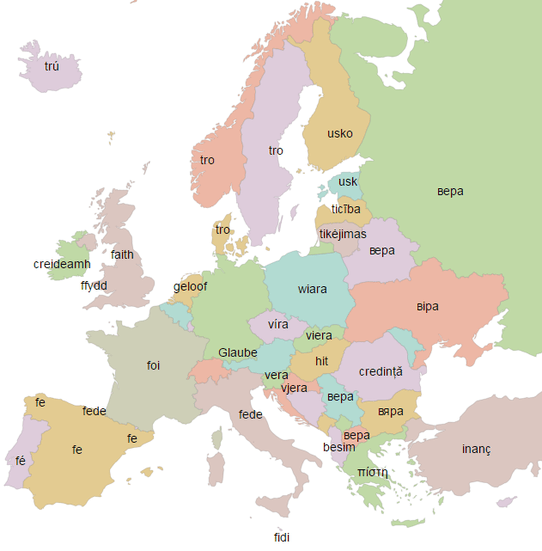Since the emergence of the Seeker Sensitive Church in America, many local churches have watered down their teaching such that doctrinal obscurity abounds in the pews and pulpits today. Decades ago, Christians would know whether they believed in premillennialism (the belief that Christ’s return will precede a thousand-year kingdom), postmillennialism (that His return is after the millennium) or amillennialism (that the kingdom is now)… but now the most common belief is panmillennialism (that somehow or another, it will all ‘pan out’ in the end).[Read More]
independence
Appositive in John 1:12
Here is a cute grammar joke that has been circulating the internet:

Personally, I prefer the Oxford Comma, but that’s a debate for another day. For now, I would like to discuss a certain grammatical relationship that’s common in the Bible. It is called the appositive. Consider this sentence:
My wife, Lena, is an awesome person!
In the above sentence, the word, “Lena,” is a repetition and clarification of the phrase, “my wife.” Who is my wife? Lena. Who is Lena? My wife. The word, “Lena,” is an appositive. It is in apposition with the phrase, “my wife.” Pretty easy, right?
[Read More]
Knowing is half the battle
Videos of Jews who have converted to Christianity have been emerging on the internet. There seems to be a common thread among many of them: they were taught at an early age that the New Testament was an evil book and they should stay away from it. I don’t even blame them for thinking Christianity is evil; just look at the atrocities committed against the Jews in the name of replacement theology. But, I don’t think that Jews, nor Christians for that matter, should avoid reading something on the account of it being heresy. As a minimum, we need to be prepared to give an answer to objectors and we need to hear the objection before we can respond.
[Read More]
Faith, Believe, Fides, Credo, and Gelēfan
The way we speak affects the way we think and the way we think affects the way we speak. And the way we speak is affected by centuries of geopolitical conflict and linguistic changes. Check out this map with translations of the word, “faith,” in various languages around Europe:
If you look at the map, you can see certain words that are similar and clumped together. The Slavic languages have something like “vera” (in the Cyrillic alphabet, “вера”). Icelandic, Norwegian, Swedish, and Danish are all from the North Germanic branch, so they are all similar, whereas German and Dutch are from the West Germanic branch, so they look like each other.
[Read More]
Nuances in English translations of John 3:16
One of my favorite authors calls John 3:16 the most beautiful 25 words of the English language and I agree. The book he wrote was translated into Russian, where John 3:16 only occupies 21 words (not to mention that the original Greek is actually 26 words). When the book was translated into Russian, it maintained the figure of 25 words. It was a good translation, but sometimes when we explain the Gospel, we need to use localization.
[Read More]
What is an Inclusio?
Inclusio is just another word for sandwich.
-John Niemelä
Ancient Greek and Hebrew literature, such as the Bible, did not have punctuation and paragraph breaks, so the authors had to use other methods to tell their audiences when certain things were happening in the structure of their books. One literary device they used to do this is called the “inclusio.”
[Read More]






